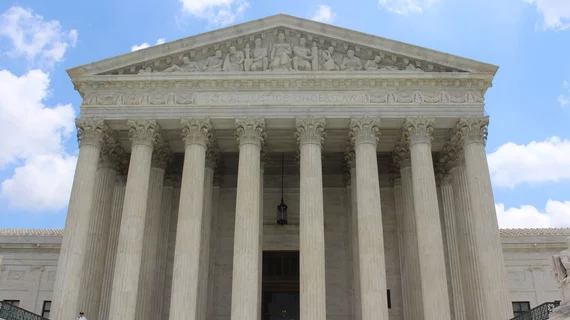Radiologists contend that state abortion bans will intensify struggle to fill physician jobs
State abortion bans following last year’s Supreme Court ruling are going to exacerbate healthcare institutions’ recruiting struggles, five radiologists contend in a new editorial.
“In an environment of severe radiologist shortages exacerbated by increases in demand for imaging and extraordinary burnout precipitating retirement, recruiters have their hands full,” Sarah P. Thomas, MD, with the Department of Radiology at Duke University Medical School, Durham, N.C., and four colleagues wrote Feb. 22 in Clinical Imaging. “The overturning of Roe v. Wade is likely to intensify the struggle to fill physician jobs in states with abortion bans, and the worst is yet to come.”
Thomas and co-authors claim this could impact multiple points across a female physicians’ career journey. This includes the location of a trainee’s undergrad program, medical school and residency program, along with decisions about when and where to start a family. The editorialists also believe radiologists in states with such bans will encounter patients with a greater number of health challenges.
“Radiology training will vary from state to state, and states with abortion bans will likely see an increasing number of complications relating to unsafe abortions, pregnant patients requiring care for non-obstetrical reasons, and neonatal fetal anomalies,” the editorial states.
Most abortions are now banned in 13 states as new laws continue to take effect following the Supreme Court decision, the New York Times estimates. Others on the opposite side of the debate believe the overturning of Roe will not impact physician recruiting.
Kathryn Carnahan, MD, a board certified OBGYN practicing in Wisconsin, called the editorial’s premise “troubling.” She said while it is true that trainees may avoid certain states in search of those that align their view of reproductive freedom, “I would argue this already occurs, and goes both ways."
“I do not see how limiting abortion would be harmful to training in pediatrics or radiology,” she said by email. “It seems more likely that limiting abortion would mean pregnant women would receive healthcare in the traditional health system, rather than having imaging done at Planned Parenthood or other abortion clinics where radiologists do not read ultrasounds, thereby increasing radiology demand.”
You can read the full editorial in the official journal of the New York Roentgen Society below.

